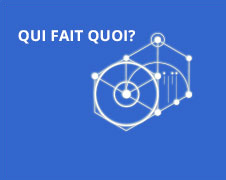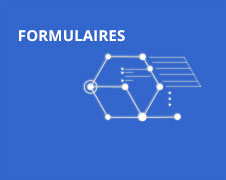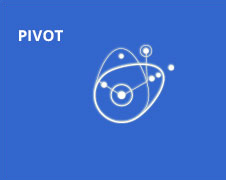Kathryn Furlong
Les infrastructures, les services publics, leur financement et les inégalités
- Professeure titulaire
-
Faculté des arts et des sciences - Département de géographie
Complexe des sciences, room B-6013
- Chercheuse
-
Faculté des arts et des sciences - Centre d'études et de recherches internationales
Pavillon 3744, rue Jean-Brillant
Media
Profile
Research expertise
Mon programme de recherche concentre autour des enjeux courants de la gestion et la gouvernance de l’eau. Je me préoccupe surtout des conséquences sociales et environnementales qui en découlent, l’effet des restructurations politicoéconomiques, et les liens avec les défis de la gouvernance municipale. Ces recherches rallient ainsi les disciplines des géographies économique, urbaine et de l’environnement tout en se penchant sur de nombreux enjeux liés à la gouvernance, à la règlementation, à la prestation des services municipaux, aux réseaux sociotechniques et aux liens entre la société et l’environnement. Les projets de recherches courants portent sur les sociétés municipales pour la prestation des services en eau en Colombie, sur les modèles de gestion de service au Canada, la gestion des infrastructures dans un contexte sociotechnique, les problèmes de qualité en eau potable, et les projets qui cherchent à améliorer l’accès aux services en eau potable en Colombie.
Biography
Kathryn Furlong est professeure titulaire au département de géographie à l'Université de Montréal et titulaire de la chaire de recherche du Canada en eau et urbanisation (2011-2021). Elle détient un doctorat en géographie humaine (UCB). Ses recherches se concentrent autour des conséquences sociales et environnementales des restructurations politico-économiques pour la gestion et la gouvernance de l’eau, en particulier dans le contexte de la gouvernance municipale. Ses recherches rallient ainsi les disciplines des géographies économique et urbaine et de l’écologie politique tout en se penchant sur de nombreux enjeux liés à la gouvernance, à la restructuration politico-économique, à la prestation des services municipaux, aux réseaux sociotechniques, à la consommation et aux liens entre la pratique et l'éthique. Ses recherches ont été appuyées par le CRSH, le FQRSC, Infrastructure Canada et le Réseau canadien de l’eau.
education
- 2007 — PhD — Géographie humaine — Université de Colombie-Britannique
Affiliations and responsabilities
Research affiliations
Teaching and supervision
Teaching
Courses taught (current session only)
Programs
Student supervision
Theses and dissertation supervision (Papyrus Institutional Repository)
El gobierno de materialidades urbanas. Un análisis sobre políticas diferenciadas de vivienda en Bogotá.
Cycle : Doctoral
Grade : Ph. D.
Limites à l’implantation du modèle de gestion intégrée des ressources en eau au Mali : cas du bassin versant du delta intérieur du Niger
Cycle : Doctoral
Grade : Ph. D.
El gran apagón : techno-politiques, crises et infrastructures dans le secteur de l’énergie électrique en Colombie (1940-2000)
Cycle : Master's
Grade : M. Sc.
Relations interterritoriales, hydroélectricité et pouvoir : le cas du fleuve Churchill au Labrador
Cycle : Doctoral
Grade : Ph. D.
Impacts des Water operators partnerships « WOPs » sur la prestation des services d’eau dans la ville de Quito, Équateur
Cycle : Master's
Grade : M. Sc.
Water, arroyos, and blackouts : exploring political ecologies of water and the state in Barranquilla
Cycle : Doctoral
Grade : Ph. D.
Le cycle hydrosocial et la fluoration de l'eau : la production des eaux fluorées
Cycle : Master's
Grade : M. Sc.
Projects
Research projects
Excavating International Accounting Norms to Improve Infrastructure Financing for Just Transitions
Centre de Recherche en Éthique ( CRÉ )
Centre de Recherche en Éthique ( CRÉ )
NSERC CREATE in Science Leadership for Global Sustainability (LEADS/LIEN-D)
Projet SUSTENTO : Enhancing the resilience of alternative food systems in informal settings in Latin America and the Caribbean through bottom-up initiatives in the built environment
Description
In Latin America and the Caribbean as elsewhere, low-income and marginalized communities have seen their vulnerability exacerbated by the Covid-19 pandemic. They are experiencing greater food insecurity and are suffering more from the cascading impacts of natural hazards and climate change. Yet every day, they produce informal, bottom-up solutions to these problems, transforming public space, housing and urban conditions at the margins of authorities’ influence and plans. These bottom-up solutions are still not fully understood by academics and practitioners. Besides, little is still known about how conditions of urban informality—where infrastructure and services are scarce, land tenure is disputed, governance structures are fragile, and housing conditions are poor—influence the emergence of alternative (that is, local, healthy, equitable, inclusive and culturally-relevant) food systems (AFS).
This project seeks to explore:
(a) how bottom-up informal solutions interact with food systems and contribute to make them more resilient to shocks such as climate change impacts and pandemics;
(b) how urban systems in contexts of informality influence the resilience and vulnerability of AFS and, by doing so, how they influence people’ capacity to deal with climate change impacts; and
(c) what are the conditions for scaling impact, transferring results, and overcoming implementation barriers towards resilient AFS in Latin America and the Caribbean.
The aim is to use such knowledge to (a) support on-the-ground, locally-specific efforts to strengthen AFS; and (b) generate and practice lessons related to the food system to reduce vulnerabilities and build resilience. It will do so by means of research, training, and implementation activities in four countries (Ecuador, Colombia, Chile, Cuba) and by means of networking and sharing activities among them and other countries in Central America. It will produce new knowledge and yield policy changes through innovative explorations that combine empirical research, action research and design. These activities will help enhance local capacity and interaction among community leaders, public officials, and academic partners and better equip communities and institutions to address challenges of food insecurity and natural hazards in the coming years.
Projet SUSTENTO. Enhancing the resilience of alternative food systems in informal settings in Latin America and the Caribbean through bottom-up initiatives in the built environment.
Description
This project seeks to explore: (a) how bottom-up informal solutions interact with food systems and contribute to make them more resilient to shocks such as climate change impacts and pandemics; (b) how urban systems in contexts of informality influence the resilience and vulnerability of AFS and, by doing so, how they influence people’ capacity to deal with climate change impacts; and (c) what are the conditions for scaling impact, transferring results, and overcoming implementation barriers towards resilient AFS in Latin America and the Caribbean. The aim is to use such knowledge to (1) support on-the-ground, locally-specific efforts to strengthen AFS; and (2) generate and practice lessons related to the food system to reduce vulnerabilities and build resilience.
L’identité hydro-québécoise : une histoire interprovinciale.
Historicizing southern urbanisms: Water supply development in Colombia 1910 - 2014
Chaire du Canada - Urban, Water and Utility
CENTRE DE RECHERCHE EN ETHIQUE (CRE)
CENTRE DE RECHERCHE EN ETHIQUE (CRE)
RéseauLab: a novel social-ecological innovation system for transformative change towards sustainability
THE PUBLIC SHAREHOLDER : THE ETHICS, REGULATION, AND RISK OF PUBLIC UTILITY COMMERCIALIZATION (WORKSHOP)
CANADA RESEARCH CHAIR IN WATER GOVERNANCE
L'ACTIONNAIRE MUNICIPAL : L'EXPERIENCE COLOMBIENNE AVEC LA PRESTATION DE L'EAU PAR LES ENTREPRISES MUNICIPALES
THE MUNICIPAL SHAREHOLDER : AN INTERNATIONAL ASSESSMENT OF THE PUBLIC LIMITED CORPORATION FOR WATER SUPPLY
L'ACTIONNAIRE MUNICIPAL: L'EXPÉRIENCE COLOMBIENNE AVEC LA PRESTATION DE L'EAU PAR LES ENTREPRISES MUNICIPALES
THE MUNICIPAL SHAREHOLDER: AN INTERNATIONAL ASSESSMENT OF THE PUBLIC LIMITED CORPORATION FOR WATER SUPPLY
Outreach
Publications and presentations
Publications
Livre
Camargo, A., Roca-Servat, D., & Furlong, K. (Eds.). (2022). Los urbanismos del agua en Colombia. Medellín: Editorial Universidad Pontificia Bolivariana. https://repository.upb.edu.co/handle/20.500.11912/10348
Furlong, K. (2016). Leaky Governance: Alternative Service Delivery and the Myth of Water Utility Independence. Vancouver: UBC Press.
Articles récents
Perdomo, J; Furlong, K. (2022). Producing mining territories: The centrality of small-scale gold mining, Colombia from colonization to the present. Geoforum.
Furlong, K. (2022). Geographies of infrastructure III: Infrastructure with Chinese characteristics. Progress in Human Geography, 46(3), 915-925.
Furlong K (2021) Geographies of Infrastructure II: Concrete, Cloud and Layered (in)Visibilities. Progress in Human Geography 45(1): 190-198. 10.1177/0309132520923098.
Furlong K (2020) Geographies of Infrastructure 1: Economies. Progress in Human Geography 44(3): 572-582.
Furlong, K. (2022). Splintering Urbanism @ 20: Reengaging Contradiction, Confinement, and Consumption. Journal of Urban Technology, 29(1), 153-159. doi:10.1080/10630732.2021.2004066
Furlong KM (2021) Full-Cost Recovery = Debt Recovery: How Infrastructure Financing Models Lead to Overcapacity, Debt, and Disconnection. WIREs Water 8(2): e1503. https://doi.org/10.1002/wat2.1503.
Furlong K (2020) Trickle-Down Debt: Infrastructure, Development and Financialization, Medellín 1960‐2013. Transactions of the Institute of British Geographers 45(2): 406-419.
Kooy M, Furlong K and Lamb V (2019) Nature Based Solutions for Urban Water Management in Asian Cities: Integrating Vulnerability into Sustainable Design. International Development Planning Review 42(3): 1-10. 10.3828/idpr.2019.17.
Furlong K, Roca-Servat D, Acevedo-Guerrero T, et al. (2019) Everyday Practices, Everyday Water: From Foucault to Rivera-Cusicanqui (with a Few Stops in between). Water 11(10): 2046. https://doi.org/10.3390/w11102046.
Furlong K, Acevedo Guerrero T, Arias J, et al. (2018) Rethinking Water Corporatisation: A 'Negotiation Space' for Public and Private Interests, Colombia (1910-2000). Water Alternatives 11(1): 187-208.
Furlong K and Kooy M (2017) Worlding Water Supply: Thinking Beyond the Network in Jakarta. International Journal of Urban and Regional Research 41(6): 888-903.
Furlong K, Carré M-N and Acevedo Guerrero T (2017) Urban Service Provision: Insights from Pragmatism and Ethics. Environment and Planning A 49(12): 2800-2812. 10.1177/0308518x17734547.
Bonilla C and Furlong K (2017) La Régionalisation des Services en Eau : Une Solution Pour Les Petites Villes Au Sud ? Étude de Cas Colombienne. Flux: Cahiers scientifiques internationaux Réseaux et territoires 107(1): 36-52.
Acevedo Guerrero T, Furlong K and Arias J (2016) Complicating Neoliberalization and Decentralization: The Non-Linear Experience of Colombian Water Supply, 1909–2012. International Journal of Water Resources Development 32(2): 172-188. 10.1080/07900627.2015.1026434.
Autres articles (sélection)
Furlong K (2015) Water and the Entrepreneurial City: The Territorial Expansion of Public Utility Companies from Colombia and The Netherlands. Geoforum 58: 195-207.
Furlong K (2014) STS Beyond the “Modern Infrastructure Ideal”: Extending Theory by Engaging with Infrastructure Challenges in the South. Technology in Society 38(August): 139-147.
Furlong K (2013) The Dialectics of Equity: Consumer Citizenship and the Extension of Water Supply in Medellín, Colombia. Annals of the Association of American Geographers 103(5): 1176-1192.
Furlong K (2011) Small Technologies, Big Change: Rethinking Infrastructure through STS and Geography Progress in Human Geography 35(4): 460-482.
Furlong K (2006) Hidden Theories, Troubled Waters: International Relations, the 'Territorial Trap', and the Southern African Development Community's Transboundary Waters. Political Geography 25: 438-458.
Chapitres d'ouvrages
Furlong K, Verdy M and Uribe A (2021) Resources in a World of Borders, Boundaries and Barriers: Dividing, Circumscribing, Confining. In: Himley M, Havice E and Valdivia G (eds) The Routledge Handbook of Critical Resource Geography. New York & London: Routledge, pp. 141-151.
Arias Castaño JA and Furlong K (2020) Full Cost Recovery Meets Crisis: Guaranteeing Access to Water under Covid-19 in Colombia. In: McDonald DA, Spronk S and Chavez D (eds) Public Water and Covid-19: Dark Clouds and Silver Linings. Kingston, ON: Municipal Services Project, pp. 329-346.
Numéros spéciaux
Zwarteveen M, Schwartz K, Acevedo-Guerrero T, Furlong K (2019) Doing Water Provision, Distribution and Conservation: A Practice-Based Approach to Water Governance. Water. 11 (10).
Kooy M, Furlong K (2019) Bottled Water: Explanations of a Global Trend. WIREs-Water. e1385
Furlong K (2016) The Public Shareholder: The Commercialization and Internationalization of Publicly Owned Utility Corporations. Utilities Policy. 40
Recensions de livres
Furlong, K. (2022). Spacing Sovereign Debt. Dialogues in Human Geography. doi:https://doi.org/10.1177%2F20438206221075689
Disciplines
- Human Geography
Areas of expertise
- Economic geography
- Urban geography
- Colombia
- Canada
- Political ecology
- Science and technology studies
- Networks
- Water
- Water governance
- Environmental issues
- Urban environment
- Public utilities
Aide en ligne pour votre profil | Nous joindre
Le Répertoire des professeurs est propulsé par les données du ![]() SADVR et est un projet du CENR.
SADVR et est un projet du CENR.


